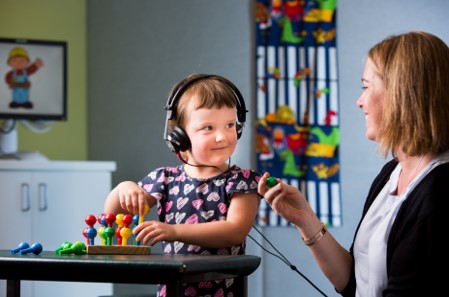$500,000 new research contract awarded to MSHS Audiology with the Department of Education and Training
Including 48 schools across Victoria, the collaborative project with the Department of Audiology and the Department of Education and Training aims to investigate the connection between hearing impairment and its impact on academic performance.
The proposed study, “Hearing Impairment and Academic Progress in Victorian Primary School Children”, will be led by researchers Professor Gary Rance, Dr Kelley Graydon and A/Professor Dani Tomlin and will expand on their 2019 Pilot Project. School-based hearing assessment of Grade 3-5 children in these schools (approximately 7900 students) will be undertaken by school-based Learning Specialists, Master of Clinical Audiology students and clinical audiologists from the University of Melbourne. In particular, the focus will be on sites with the highest enrolment of indigenous students (≥30 per school)
Professor Gary Rance states: “There is a clear link between paediatric hearing impairment and developmental delay, and children with even mild-degree hearing loss are at increased risk of psychosocial abnormality, poorer health-related quality of life and compromised academic performance.”
Speaking of their Pilot Project, Professor Rance adds:
“Our findings involved seven Victorian primary schools with 11% of Prep-Year 6 children presenting hearing deficits severe enough to impede classroom communication and participation.”
“The prevalence of hearing problems in Victorian indigenous children is yet to be firmly established but in the Pilot Study around 40% of indigenous Primary School students were diagnosed with significant hearing impairment.”
Thus, addressing hearing deficits in the Indigenous Australian population, who are known to suffer dramatically higher rates of middle ear disease and hearing impairment than non-indigenous Australians, is essential to close-the-gap in life outcomes.
The Project Aims to:
- Examine the feasibility and effectiveness of school-based hearing screening
- Investigate the prevalence of hearing impairment in Grade 3-5 indigenous and non-indigenous children in Victoria
- Identify and ameliorate hearing deficits in children from participating schools
- Explore the relationship between different types/degrees of hearing impairment and academic outcomes - providing an evidence base for future (State-wide) school-based hearing assessment initiatives.
We congratulate the Departments for this incredible opportunity and look forward to their future developments.